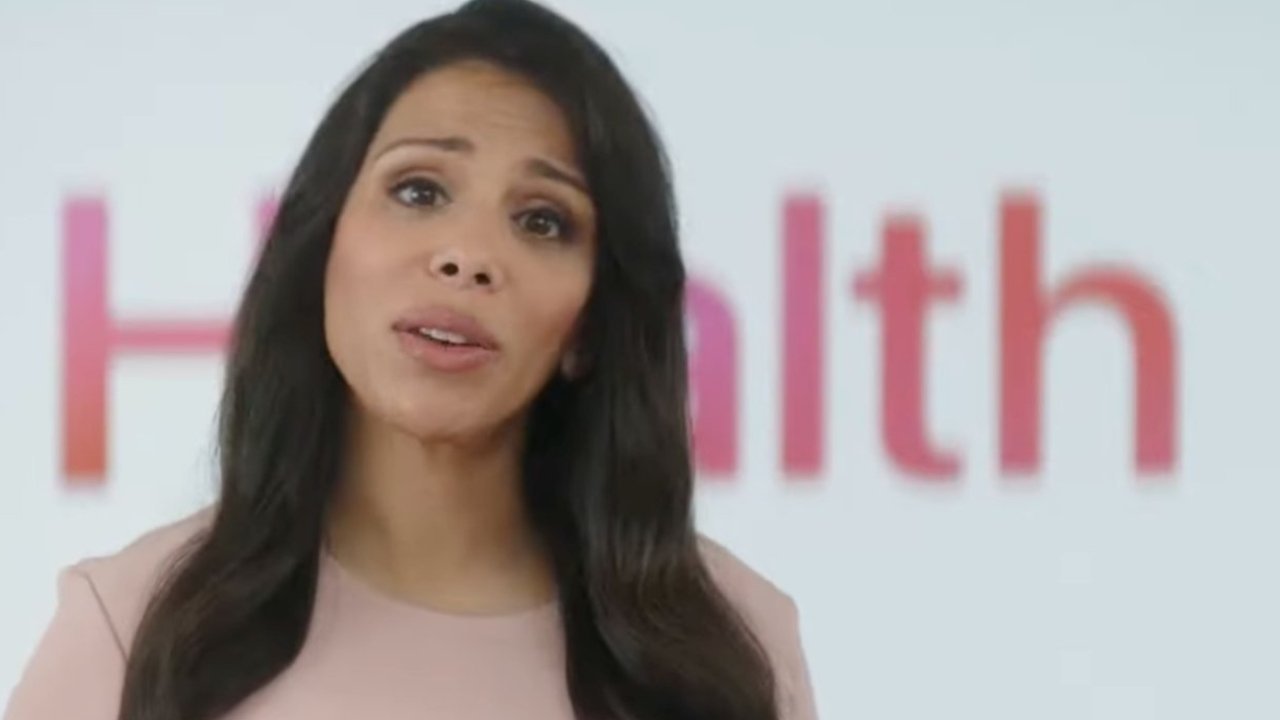Apple's work in healthcare goes beyond the immediate need of the consumer, with the company wanting to to improve preventative care and aid in research, according to Health VP Dr. Sumbul Desai.
After speaking at India's BioAsia 2023 conference about Apple's preventative health work, Dr. Desai is continuing to court the media about the company's efforts in the field.
Apple is still at the beginning of its health journey, "because ultimately health tech is a very large people change management problem," Desai told The Hindu Business Line. "You have to change the behavior of physicians and then you have to change the patients' and customers' behaviour. Behavior change is one of the hardest things to do."
Apple works to "empower an individual to be holistic about their health," by providing actionable insights "founded in scientific evidence" and based on their own data.
When asked about CEO Tim Cook's statements that Apple's biggest contribution will be in the health space, Desai pushes the point further, saying Apple is working to "really focus on bringing more awareness and empowerment to each individual so that they truly are going to have the driver's seat of their own health."
Investments in research and collaborations are also brought up as ways to help Apple understand people's health "sooner and earlier," as a preventative measure.
"If we can touch people's lives in a way, where we can prevent them from developing diseases, or actually be healthier and feel like they're empowered and educated to drive their own health care," the doctor said. "There's nothing more impactful than that."
The interview also meanders into privacy, part of Desai's BioAsia talk, with the VP stressing the privacy-forward nature of Apple's systems, including encryption and local-to-device storage. "You should expect the same level of privacy from your technology as you would expect from your doctor. That's the standard we hold ourselves to," Desai proposes.
On democratizing the availability of health tools to a larger population, Desai stresses that Apple isn't planning to replace or deliver healthcare. However, the company's diversification of its product lines helps make the same tools more available, especially to those who don't want premium hardware.
Apple also donates units of the Apple Watch to researchers for use in research programs.
When asked about research stemming from India, Desai points out some of the best researchers come from the country and its "world-class research community."
Other subjects brought up in the interview include a need to allow companies to innovate "regardless of size" in response to drama with US lawmakers, and a sidestepping of the glucose sensor topic.
 Malcolm Owen
Malcolm Owen


 Andrew O'Hara
Andrew O'Hara

 Marko Zivkovic
Marko Zivkovic

 Chip Loder
Chip Loder
 Christine McKee
Christine McKee
 William Gallagher
William Gallagher
 Amber Neely
Amber Neely



-m.jpg)





1 Comment
Health and technology make a natural marriage on many levels.
Obviously education and understanding how biological processes work for differing individuals is a key point that can be of help.
Connecting newly learned information to your health specifics and historial is a logical and easy move. As is sharing that data so that it can be analysed on a larger scale.
Technology can help to put accumulated data into perspective. It can also 'visualise' vast datasets.
Technology can also be key in interpreting raw clinical data.
And ever increasing pool of user specific knowledge, accesible at all times can only be good but there will always be pitfalls.
How data is interpreted is one of them but that isn't really a technology problem in itself.
All in all, technology should be a health positive as long as we never lose sight of the basics. We all need good quality food, exercise and decent sleep.
Apple is simply one of many, many tech companies involved in health. The larger the company, typically the less they get out of R&D so we can expect lots of laser focused startups getting gobbled up along the way.
I just hope that any push into health is kept 'open' and not used to try and lock people into any particular eco-system.
It would be nice if health data were user centred as opposed to device centred.